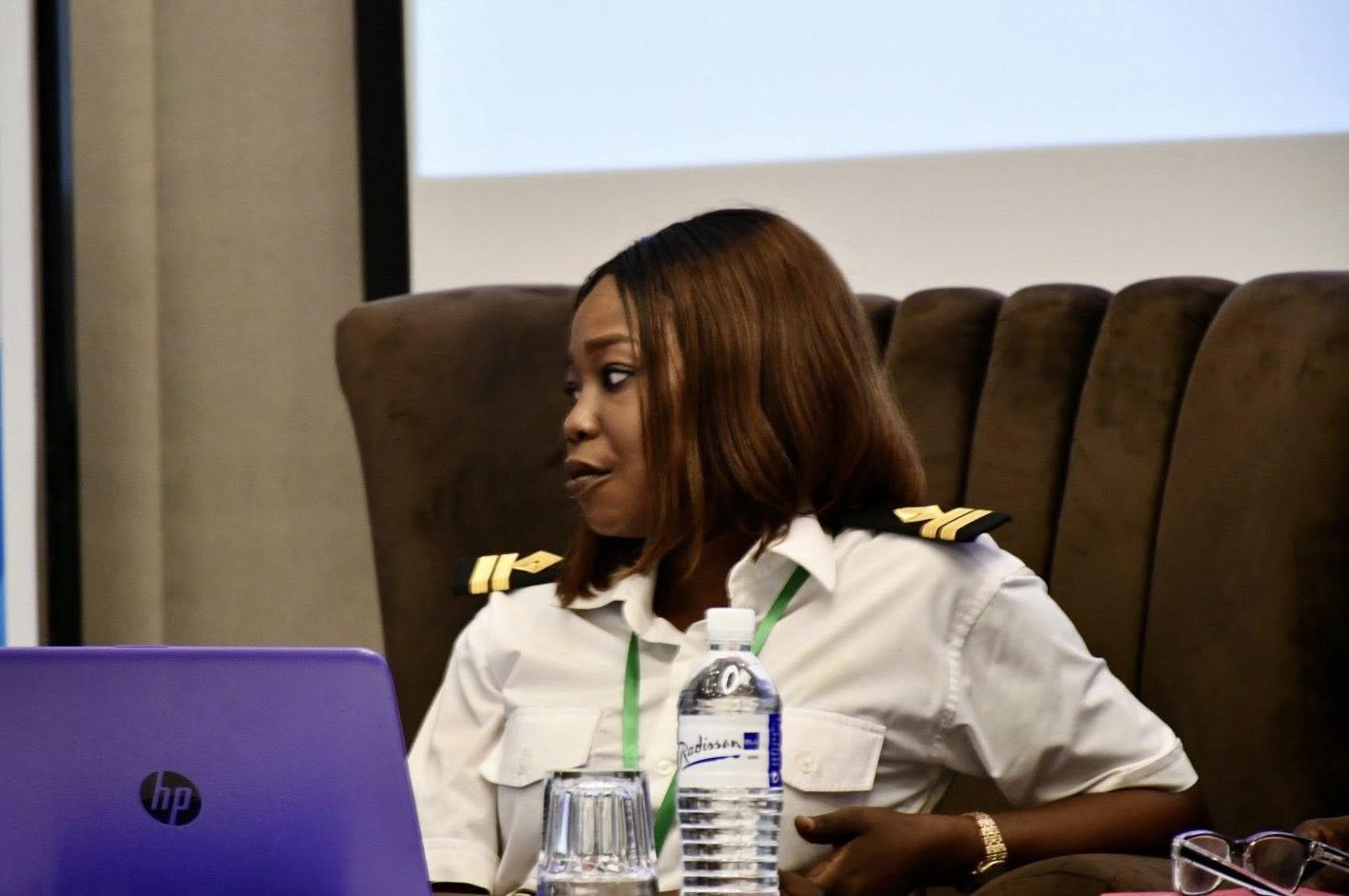Africa-Press – South-Sudan. South Sudan’s first female maritime captain, Ajak Anthony Akol, has stated that women in the country are being held back economically by old cultural ideas, unjust laws, and difficulty getting financial support.
Captain Ajak spoke during the Women’s Leadership Conference held from June 25th to 27th in Juba. (Courtesy of Concern)
She called for urgent changes to remove the major problems that prevent women from owning land, getting loans, and participating fully in building their nation.
Captain Ajak pointed out that even though women make up a large part of the population and play very important roles in farming, trade, and caregiving, they still struggle financially. She attributed this to cultural, legal, and traditional practices that constrain them.
Why Women Struggle in Business and the Economy
In her important talk, titled “Enduring Women’s Economic Development,” Captain Ajak (who is also a lawyer and expert in maritime law and oil operations) listed seven main problems:
The legal expert explained that deep-seated beliefs that women should only stay home and take care of the family stop them from working. This is made worse by early and forced marriages.
Captain Ajak stated that a lack of education has led many girls, especially in rural areas or places affected by conflict, to drop out of school. This makes it very hard for them to get good jobs or start businesses.
She described unfair customary laws as old traditional laws that often prevent women from owning or inheriting land. Land is very important for getting a loan or starting a business.
Regarding access to money, Akol stated that banks often perceive women as high-risk clients because they might lack collateral or a steady income. This makes it hard for women to get loans or use banking services.
On the implementation of the law, she stated that although South Sudan has ratified international agreements on gender equality, these good laws are not always put into action or followed well in the country.
The maritime captain pointed out that problems such as maternal health issues, high rates of HIV/AIDS, and caregiving responsibilities reduce women’s productivity and economic engagement.
She stated that the government does not always set aside enough money or collect enough information to truly help and track how well gender equality plans are working.
Captain Ajak didn’t just highlight the problems; she also offered clear and comprehensive ways to make things better.
On land rights, she suggested changing land laws and ensuring women’s property rights are protected.
She advocated for more science, technology, engineering, and math (STEM) education and job training programs, especially for women in villages, so they can acquire better skills.
Captain Ajak said the government needs to make it easier for women to get small loans (microfinance), join savings groups, and support small and medium businesses run by women.
According to Ajak, improving health services for mothers and providing support for women with disabilities or long-term illnesses is crucial.
She called for safe public places for women and increased involvement in peacebuilding and governance.
Ajak believes that strengthening institutions can help government offices like the Ministry of Gender become more effective in implementing gender-responsive programs.
On digital skills, Captain Ajak encourages women, especially in rural areas, to learn digital skills, use mobile banking, and do business online (e-commerce).
She stressed the need to consistently monitor progress, including how well the 35% affirmative action policy for women in leadership is being followed and whether goals for gender equality (like SDG 5) are being met.
Good Signs and a Call to Work Together
Captain Ajak also praised the South Sudanese government and other groups for their efforts in increasing female participation in public life. She noted that the large presence of women leaders at the conference was itself a sign that the country is heading in the right direction.
“This hall is full of women—MPs, judges, civil society leaders. It’s a sign our country is heading in the right direction,” she said.
She concluded her address by strongly urging local leaders, religious groups, and international partners to continue supporting programs that uplift women across all sectors, particularly in hard-to-reach and marginalized areas.
“Addressing women’s economic challenges demands a holistic approach from policy to grassroots. We must act collectively – government, civil society, and communities – to unlock the full potential of South Sudanese women,” Captain Ajak stated firmly.
As the applause resonated through the conference hall, one message was clear: Captain Ajak’s voice isn’t just navigating the seas; it’s helping to guide South Sudan towards a brave and fair future for everyone.
For More News And Analysis About South-Sudan Follow Africa-Press






